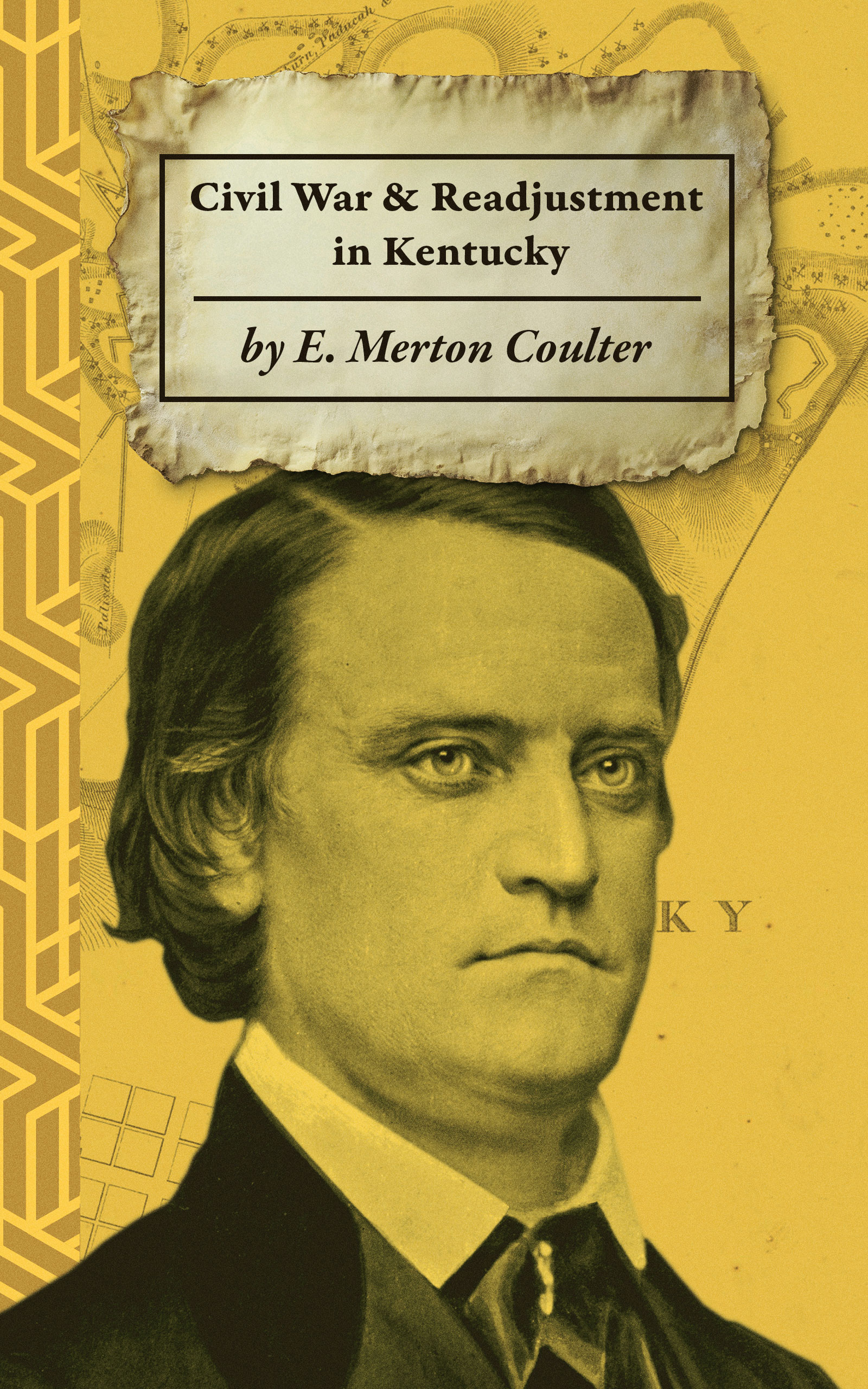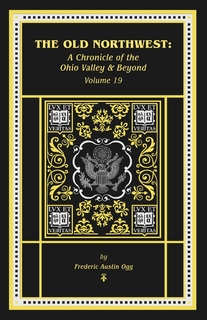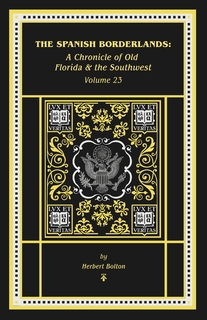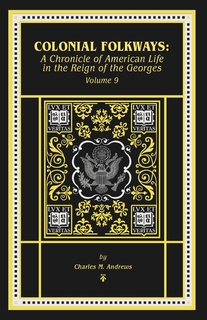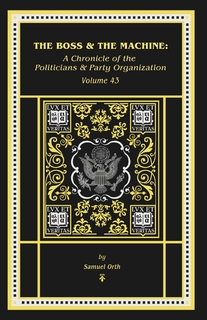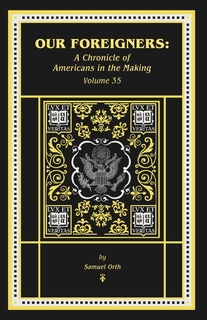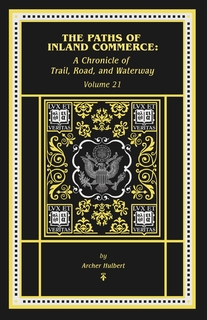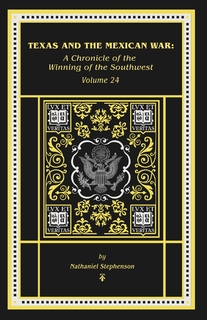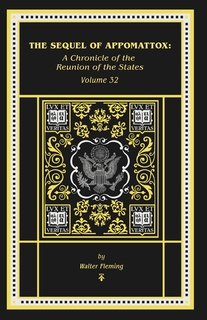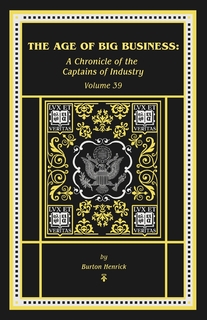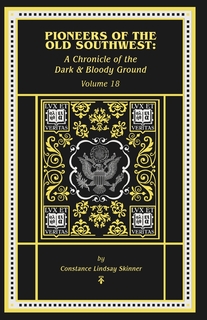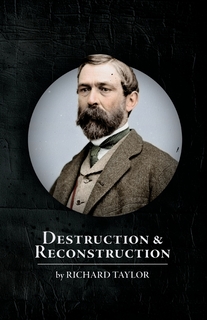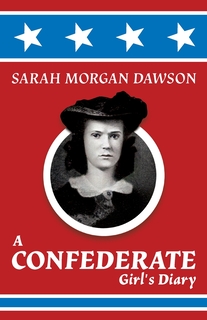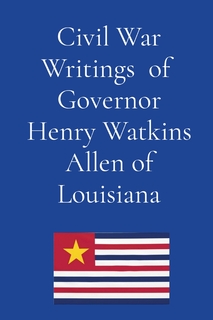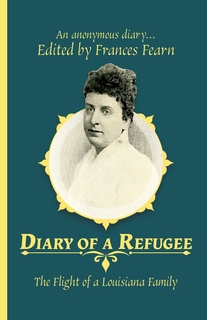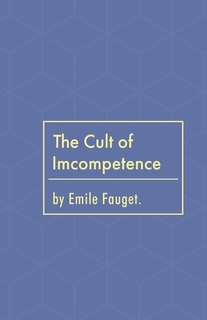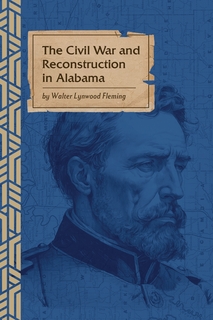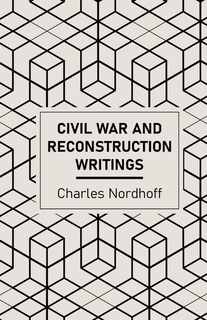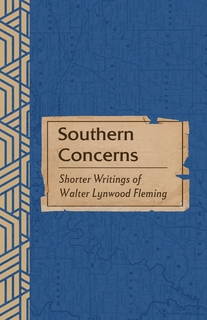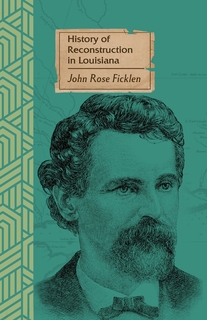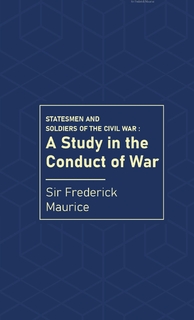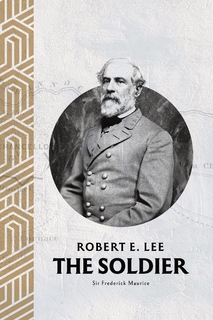Civil War and Readjustment in Kentucky
E. Merton Coulter
Kentucky was uniquely split in interests and sentiments during the Civil War, with the people and folkways from the South, but the economy dependent on the Union-held Ohio Valley. Kentucky's unique effort to maintain a hopeless, neutral status, her subsequent occupation, and the early application of military government and suspension of civil rights for citizens make her experience outstanding in the history of the period. E. Merton Coulter's account of Kentucky's ordeal draws heavily on the primary sources and is the authoritative study on the state in this period.
The Old Northwest: A Chronicle of the Ohio Valley and Beyond
Ogg, Frederic
The Old Northwest by Frederic Ogg is the story of the settlement of the Ohio Valley and the territory of the Northwest Ordinance, including Michigan. The work covers the conspiracies of Pontiac, Tecumseh, and Black Hawk, the drama of the War of 1812 in the West, the folkways of the mid-west pioneers, and the Anglo-American leaders of the region, including William Henry Harrison and "Mad Anthony" Wayne. The work includes a useful bibliography by the author.
The Spanish Borderlands: A Chronicle of Old Florida and the Southwest
Bolton, Herbert
The Spanish Borderlands by Herbert Bolton, is the account of the first Spanish explorers and settlers of what later became the United States. It covers the exploration and settlement of Florida, Texas, California, and the Spanish administration of French Louisiana. The adventure, shipwreck, conquest, and often brutal encounters with natives and European rivals makes this account engaging and of enduring interest. Herbert Bolton was a world-renowned authority on Spanish-America in his day, authored nearly one-hundred books, and won the Bancroft Prize for his 1949 biography of Coronado.
The Reign of Andrew Jackson
Ogg, Frederic
The Reign of Andrew Jackson is Volume #20 in the series, and contribution of the prolific Frederic Ogg, who was a professor of political science at the University of Wisconsin. Ogg was notable for his research in the rise of European nation states in the 19th century. His account of Jackson is an excellent biography of one of America's most dynamic leaders. Manly and martial, Jackson was early acquainted in the realities of national struggle, the necessity of stout leadership, and American republicanism. He sprung into action many times to defend his community, sacrificing his own purse and health in war. His extraordinary stamina with wounds, hunger, and illness, won him the honorific, "Old Hickory," and made him an original American hero. As President, Jackson embodied much of the Jeffersonian Federal ideals, paying off the national debt, vetoing the Bank, and championing small farmers. He established himself as a champion of nationalism in the Carolina Nullification Crisis. His fateful choice of ethnic separatism combined with paternal patronage established the early Indian Reservation System, and realized national legal and social norms. Jackson's efforts to root out corruption in the civil service and government waste resulted in the effective shrinking of bureaucracy, regulations, taxes, and the size of the military. He was also especially adamant that the Federal apparatus was guarded against the patronage of special political interests, while also establishing a more "spoils system," where he could hire loyalists in his administration. The great Scotch-Irish leader appears in our history like a chieftain of medieval Britain. Ogg offers exposition of the major events in Jackson's career and an appreciation of the controversies of the age thereafter known as Jacksonian America. Jackson's major political works, including his two inaugural addresses, are offered in the appendix.
Colonial Folkways: A Chronicle of American Life in the Reign of the Georges
Andrews, Charles
Folkways consist of food, architecture, dress, religion, literature, and the elements of culture that Eliot said "make life worth living." These essential features, rooted in the ethnogensis of peoples is fundamentally connected to the early settlement of the later United States. This study was pioneered by Charles Andrews (1863-1943): the preeminent authority on the field in his day. Andrews was a prolific academic, winner of the Pulitzer for his multivolume work on colonial America, president of the American Historical Society, and professor of history at Yale.
The Boss & the Machine: A Chronicle of Politicians and Political Organization
Orth, Samuel
The Boss & the Machine, Volume # 43 in the series, is the history of American political parties from the Constitutional debates to the Progressive Era. Author Samuel Orth explains the constituencies and concerns of the major and minor parties, the decline and rise of the Whigs and Republicans, the growth and patronage of the civil service, and the organization of the urban political "machines." In conclusion, the history evaluates the professionalization of the civil service as a means of combating corruption and the influence of the party "bosses" in the cities.
Our Foreigners: A Chronicle of Americans in the Making
Orth, Samuel
Samuel Orth's Our Foreigners is an account of the racial demographics of the United States in 1920, at the cusp of the dramatic Congressional limitation on immigration in the landmark Johnson-Reed Act of 1924. Orth narrates the history of the English settlers of Colonial America, the African-American element in America, utopian migrations and movements into America with their unique visions of American possibilities, and the more recent and mostly European cohorts of the turn-of-the-century. This valuable narrative of settlers and migrants makes valuable comparisons and commentary on American identity and the mystery of durable human groupings in the United States.
The Paths of Inland Commerce: A Chronicle of Trail, Road, and Waterway
Hulbert, Archer
Volume #21 of the series, The Paths of Inland Commerce, concerns the trails, highways, and canals in the early republic. The visionary investors in waterways and pathways to the great west facilitated the movement of commodities and settlers until the revolutionary invention of the steamboat came to dominate transportation and cause the rapid growth of the river towns down the Ohio to the Mississippi and New Orleans. This dramatic history of pioneers and cargoes chronicles the dynamic changes between the colonial period and the age of the railroad. The prolific Archer Hulbert authored a sixteen volume series on trails, canals, roads, and rail in early America titled The Historic Highways of America between 1902 and 1905.
Texas and the Mexican War: A Chronicle of the Winning of the Southwest
Stephenon, Nathaniel
Texas and the Mexican War, Volume # 24 of the Chronicles of America Series, concerns the dramatic expansion of Anglo-American settlement in the Southeast which resulted first in the independent Republic of Texas and then in the annexation of Texas and the resulting war with Mexico. The improbable Texian victory at San Jacinto and the capture of the Mexican dictator General Santa Anna is one of the great heroic moments of American history, and the leadership of Sam Houston and President James Polk finally secured Texas, California, and the territory in between for the American Union. This volume includes as an appendix documents related to the story of Texas, including select correspondence of Stephen Austin, the Texas Declaration of Independence and selected speeches of Houston and Polk.
The Sequel of Appomattox: A Chronicle of the Reunion of the States
Fleming, Walter
This volume on Reconstruction is from Walter Fleming, an early authority on the period. This comprehensive work considers the social, economic, and political tensions of the era, the conflicts among the dominant Republicans about the readmission and control of the former Confederate states, the long ordeal of martial law, and the dependence that endured after slavery. Fleming's volume is the best brief survey of this confused time. Included in this volume is an appendix of primary sources concerning the beginning of Reconstruction. These observations of travelers, journalists, diarists, and leaders gives valuable insight into the conditions of civilians, the labor and racial conflicts, and the development of Constitutional questions after the War.
The Age of Big Business: A Chronicle of the Captains of Industry
Henrick, Burton
The American industrial tycoons of the Gilded Age embraced new technologies, scaled them, and made the telephone, the automobile, cheap steel, and petroleum fuels ubiquitous in American life. These dynamic leaders in business built corporate empires and the cities of the industrial heartland, making names for themselves and enduring fortunes that continue to influence American life. Carnegie, Rockefeller, Ford, and Vanderbilt all enliven this study of the titans of American enterprise. Burton Henrick's volume, #39 in The Chronicles of America series, includes the author's bibliography, an original historiographic essay on the "robber barons" interpretation of the tycoons, and a new bibliography of suggested readings in the field.
Pioneers of the Old Southwest: A Chronicle of the Dark and Bloody Ground
Skinner, Constance
This narrative of the pioneers of Appalachia is a dramatic tale of the first Anglo-Americans in the Old Southeast. Led by Daniel Boone, these settlers and adventurers staked claims against the French and the Indian Nations, fought the Loyalist element during the Revolution, and worked to plant the institutions of civilization in the wild mountains of the frontier. Constance Skinner, a Canadian historian and novelist, is best known for conceiving and editing the Rivers of America: a collection of histories focused on American waterways.
Destruction and Reconstruction
Taylor, Richard
Richard Taylor, the son of President Zachery Taylor and the brother-in-law of Jefferson Davis, was a classically educated planter who became one of the Confederacy's most capable generals. First serving in Jackson's famous Valley Campaign, he returned to Louisiana after the fall of New Orleans to contend for the Trans-Mississippi and wrought some of the Confederacy's last military victories on the Red River Campaign. His memoirs are consistently praised as a sober, measured, and informed account of the War.
A Confederate Girl's Diary
Dawson, Sarah Morgan
Sarah Morgan was a young lady of Baton Rouge, Louisiana, who documented in her diary her experiences from the dawn of the Civil War to its close. Born to station as the daughter of a Louisiana judge, she witnessed the capture of lower Louisiana, the occupation of her town, and the eventual destruction of her home. Her view of the homefront and her poignant reactions to events make this a primary source of enduring value.
Civil War Writings of Henry Watkins Allen of Louisiana
Allen, Henry
Allen was Louisiana's second and last Confederate Governor. His wartime speeches concern his efforts to supply the Trans-Mississippi Department and provide for civilians displaced by the War. Allen produced an important study on the depredations of Federal soldiers in Louisiana. Finally, his health wrecked by war wounds, Allen became an exile in Mexico, where he was patronized by Emperor Maximilian and ran a newspaper for displaced Confederates. He died in April of 1866.
Diary of a Refugee
Fearn, Francis
This rare account of an anonymous Louisiana woman during the War has long been out of print and was edited by a close relation of the author. The Diary recounts a planter family's last days on their bayou farm and their desperate flight across Louisiana to Texas, Cuba, and finally to Europe. Wartime conditions, finding provisions on the frontier, and reactions to novel locales make this account valuable and interesting.
Memories: A Record of Personal Experience and Adventure During Four Years of War
Beers, Fanny
The memoirs of Mrs. Beers recount the journey of a Confederate soldier's wife from New Orleans to the bloody battlefields of Georgia, where she served as a nurse in the Atlanta Campaign. Her devotion, travel, and reactions to privations and suffering make this a significant record of the Southern homefront during the War.
Genesis of the World War: An Introduction to the Problem of War Guilt
Barnes, Harry Elmer
Harry E. Barnes was a world authority on political science until his opposition to the Great War of 1914 made him the black sheep of American Political Science. This scholarly and detailed analysis of the origins of World War One and his indictment of the Allied Powers is his masterpiece and the single best analysis of the intentions, statements, and propaganda related to the conflict. This volume is a deluxe, cloth-bound edition.
The Cult of Incompetence
Fauget, Emile
Fauget was a French Catholic and critic of liberal, republican government. This defense of aristocratic political norms indicts the decreasing quality of administrators in France in 1911, which he identifies with the collective lowering of standards of excellence in the West.
Memory, Union, and Empire: The Shorter Writings of Charles Francis Adams, Jr.
Adams, Charles F. Jr.
Charles F. Adams Jr. was the grandson and great-grandson of the two Presidents of Massachusetts. Born to wealth and privilege, he volunteered for service in the Civil War and became an historian after the War. This original collection of his shorter writings includes his historiography, his analysis of the imperial ambitions of America, and his many public tributes to the character of Robert E. Lee and Confederate Veterans.
The Civil War and Reconstruction in Alabama
Fleming, Walter
Walter Fleming's history is one of the key contributions to the "Dunning School" of Reconstruction historiography. The son of a Confederate soldier, Fleming collected oral testimony and a plethora of first-hand accounts of his native Alabama for this pioneering work. He analyzes intentions, policies, and reactions in this humane and revealing treatment of the peculiar problems of the post-war South.
Civil War and Reconstruction Writings of Charles Nordhoff
Nordhoff, Charles
Charles Nordhoff was a Republican journalist active during and after the Civil War whose travels through the Reconstruction South are an invaluable source for the political, social, and economic conditions in several Southern states. Appalled by the draconian policies of Congressional Reconstruction, Nordhoff was an influential voice in the compromise of 1876 that ended Reconstruction. Included here are other short pieces concerning Republican reforms in the North and in support of the war effort. This is an original collection.
Southern Concerns: The Shorter Writings of Walter Lynwood Fleming
Fleming, Walter
This original collection of the monographs of the prolific Fleming is a delightful assortment of topical essays from a lifetime of research. An authority on his period, this collection includes analysis on Sherman, Davis, the colonization of free slaves, economic conditions in the Reconstruction South, foreign immigration into the South, and book reviews.
History of Reconstruction in Louisiana
Ficklen, John
John Ficklen was a Louisiana historian who was the first to write about the tumultuous Reconstruction period in a state that others declared to be the most corrupt and violent during Reconstruction. His account of the origins of military government after the early fall of Confederate New Orleans and the origins of the Union Government of Louisiana enlighten the controversies and legitimacy crisis of the state that followed the collapse of the Confederacy in 1865.
Statesmen and Soldiers of the Civil War
Maurice, Sir Frederick
Major-General Sir Frederick Maurice was a British knight and historian. His experience as a high official in the Great War led him to analyze the civilian leadership over military operations in modern war. Maurice examines the relationships between the presidents and generals in the American Civil War, taking into account communication styles, personality quirks, trust, and character. The dynamic personalities of the War, from Davis and Lee to Lincoln and Grant, make the study of enduring interest. Maurice concluded with a comparison between the leadership in the Civil War with the function of the British High Command in the Great War and modern military doctrine. The work was received with interest and acclaim by the scholars of the day.
Robert E. Lee: The Soldier
Maurice, Sir Frederick
Major-General Sir Frederick Maurice was a British knight and historian. He evaluated Lee's military acumen with reflections on the experience of the Great War and produced this biography of one of the "great captains" of history. The work was received with interest and acclaim by the scholars of the day.
Coming Soon
These books are currently in development and will not be available just yet Please check back soon for updates.
